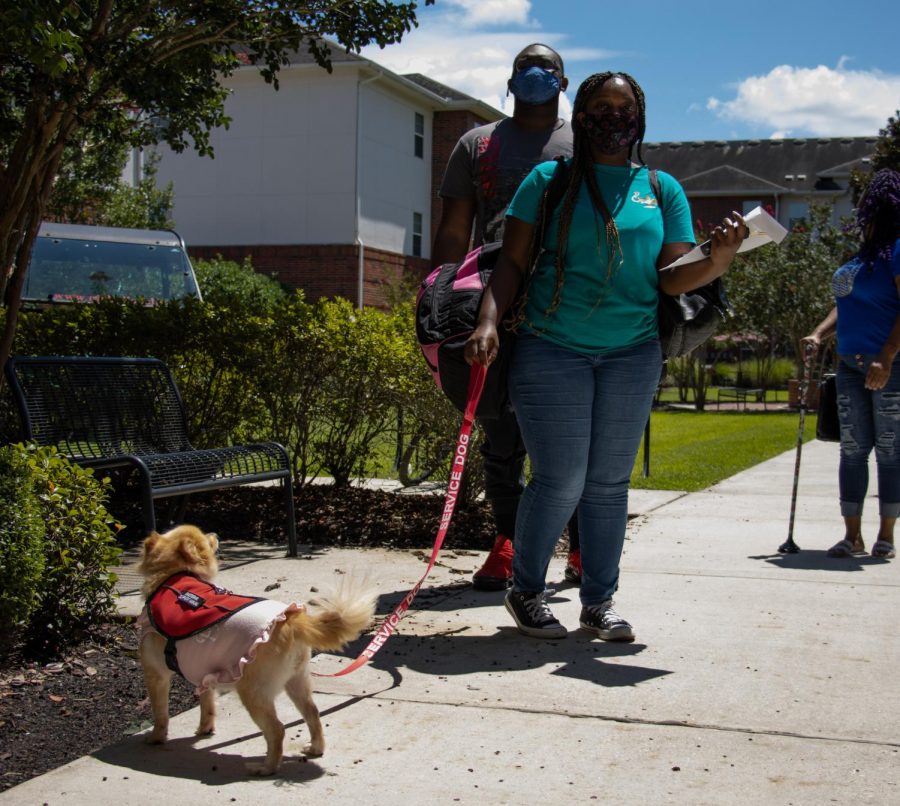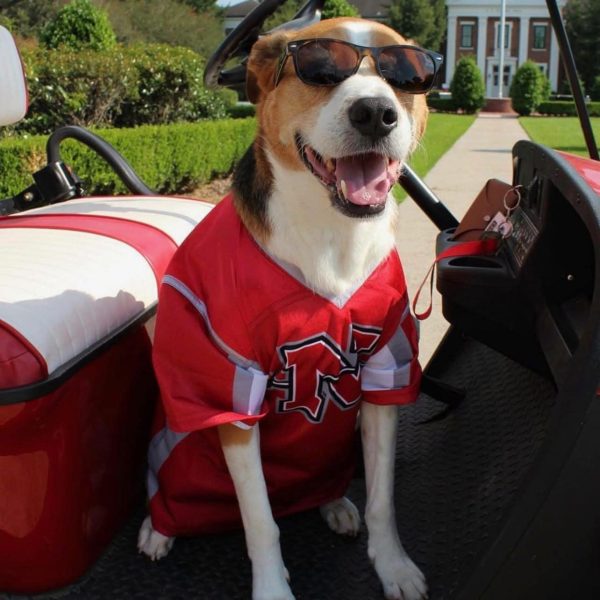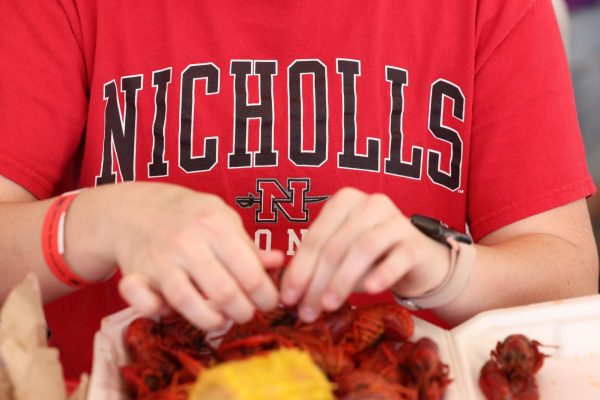Service dogs on campus
Have you ever wondered who else walks the campus? It is not just students, faculty, parents or visitors, but it is also animals. Many people have differing views about what a service or an emotional support animal is, and I am going to break it down.
A service animal is specifically trained to perform tasks for a person with a disability including a physical, sensory, psychiatric, intellectual or other mental disability. Emotional Support animals are often listed as therapy animals who relieve individuals with an emotional or mental disability through companionship.
Emotional Support animals are often listed as therapy dogs, however, they are not just limited to dogs. An Emotional Support animal can be a wide range of animals. These animals provide support for those who need comfort to relieve symptoms of anxiety, loneliness or any symptom of a person’s disability.
According to the Americans with Disabilities Act, “An emotional support animal can be a pet and also does not restrict to one species.”
These emotional support animals are seen less around campus, however, they can be a wide range of different animals, it can even be one’s own pet.
To be granted an emotional/service support animal on Nicholls State University’s campus, the owner must be certified by a mental health professional that they have an emotional/mental disability; only a psychiatrist, psychologist or a licensed healthcare provider can approve.
Then, one has to run it by the Student Access Center to go over the qualifications and fill out paperwork. The animal must be approved by all residential roommates and the Student Access Center, and then it can be official.
To be allowed a working service animal on campus, one must have their animal individually trained, under control at all times, they must have a leash/harness and they must be housebroken. If improper care is noticed, the university may ask the individual to remove the service animal from all of their facilities. If the animal’s behavior is seen as a threat, such as excessive barking or disrupting others, the university can impose legitimate safety requirements to be able to continue working in a safe operation.
If the service animal is properly trained, they can bring medication, water, alert individuals, protect or provide physical support and assistance. Most animals are great as emotional or service animals, as they can sense depression and can read their owners. They know when their owners are not feeling healthy or themselves.
A few animals who can be trained and considered as service animals are miniature horses, capuchin monkeys, pigs, ferrets, ducks and even parrots. Under certain conditions, Nicholls will make reasonable modifications for a miniature horse that has been individually trained for the benefit of the impaired.
Student Access Director Kaci Bergeron mentioned that many students come eager to bring their pets on campus, but Nicholls is serious about one’s health and guidelines. She described the most common illness for getting an emotional support animal is anxiety and depression. She also disclosed that even staff and faculty have the same protections for getting a support/service animal on campus as students, and many have been approved and rejected.
Bergeron said that there are 13 assistance animals on campus as of today, and more to come in the future as she believes it is helpful towards those who stand with service/support animals.
Service animal can help those who have the following disabilities: ALS, Arthritis, Cardiac-related disabilities, Cerebral Palsy, Chronic back/neck issues, Diabetes, Epilepsy, Fibromyalgia, Narcolepsy, Paralysis, Parkinson’s Disease, Spinal Cord Injuries, Strokes, etc.
The list goes on, but having a service dog is extremely beneficial to those in need of providing “Aid in balance, assisting with wheelchair transfers to bed/chair, opening doors, turning off lights, retrieving items, alerting when certain illnesses arise.”
Alyssa LeBlanc, sophomore Culinary Major, introduced me to her support animal Mr. Wiggles, a guinea pig. She stated at certain times that she feels overwhelmed. When she finds herself to be overwhelmed, she finds Mr. Wiggles and he will cuddle and give her the support that she needs.
LeBlanc notes how blessed she feels in her life now that he is around, and she claims that she has seen a tremendous change in her lifestyle with more productivity and responsibility. She encouraged others to do research if they struggle with anxiety, depression or other illness because “He changed my life.”
Aleksandra Adams, junior Psychology Major, said that she has an emotional support black cat named Argent. She implied that he 100% changed her life for the better. Anytime she experiences flows of depression or needs soothing, Argent lays up in her arms or does something completely silly. She described Argent to be a whole different personality that she needs in her life and that he has instinctive senses that know when she is not feeling herself.
Argent has been her comfort for almost six months and is only going to develop a stronger relationship with Aleksandra.
Owning a service or emotional animal can bring back freedom to owners without having to worry about keeping a strict eye on themselves. The security that comes with owning a support system is relieving to those who have spoken out about support animals. Many owners say that they could not imagine a life without their assistance animals. They also urge those who struggle with anxiety to research the benefits of service animals.
Here are some basic rules of interacting with service animals:
Do respect the owner and their privacy
Do speak to the owner rather than the animal
Do keep your own pet a distance away from a working animal
Don’t offer food to the working animal
Don’t distract or pet the working animal
Don’t approach without the owner’s permission

Hi! My name is Delaney Ligori, and I am a junior Mass Communication Journalism major with a minor in Film Studies.
Top Favorite colors: Blue and Green
Comfort...












